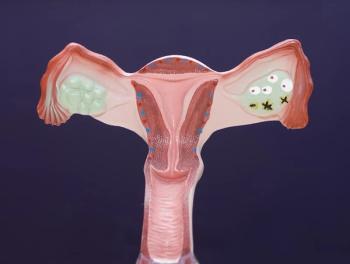
Miami Breast Cancer Conference® Abstracts Supplement
- 40th Annual Miami Breast Cancer Conference® - Abstracts
- Volume 37
- Issue suppl 4
- Pages: 14-15
9 Phase 1 TROPION-PanTumor01 Study Evaluating Datopotamab Deruxtecan (Dato-DXd) in Unresectable or Metastatic Hormone Receptor–Positive/ Human Epidermal Growth Factor Receptor 2–Negative Breast Cancer
Background
Available treatment options for patients with HR+/HER2− breast cancer who have progressed on or after endocrine therapy have shown limited efficacy. TROP2 is highly expressed in various tumor types, including breast cancer, and high membrane expression levels may be a marker of poor prognosis in patients with breast cancer. Datopotamab deruxtecan (Dato-DXd) is an antibody-drug conjugate consisting of a humanized anti-TROP2 IgG1 monoclonal antibody covalently linked to a highly potent topoisomerase I inhibitor payload via a stable, tumor-selective, tetrapeptide-based cleavable linker.
Materials and Methods
TROPION-PanTumor01 (NCT03401385) is a phase 1, multicenter, open-label, 2-part, dose-escalation and -expansion study evaluating Dato-DXd in previously treated patients with solid tumors. The primary objectives were safety and tolerability. Tumor responses, including ORR (CR + PR) and DCR (CR + PR + SD), were assessed by BICR per RECIST version 1.1.
Results
As of the July 22, 2022, data cutoff, 41 pts had received Dato-DXd (median study duration, 13.7 mo; range, 9-16 mo). The primary cause of treatment discontinuation was disease progression (71%). Median age was 57 y (range, 33-75 y). Pts were heavily pretreated, with a median of 5 (range, 3-10) prior regimens in the advanced setting; 95% had a prior CDK4/6 inhibitor (CDK4/6i) (adjuvant/metastatic). Treatment-emergent adverse events (TEAEs) were observed in 100% (any grade) and 41% (grade ≥3) of pts. The most common TEAEs (any grade, grade ≥3) were stomatitis (83%; 10%, respectively), nausea (56%; 0%), and fatigue (46%; 2%). Serious TEAEs were observed in 6 pts (15%); 1 pt died due to dyspnea, which was not considered treatment-related. Five pts required dose reductions, 15 had treatment interruptions, and 5 discontinued treatment due to keratitis (n = 1), keratopathy (n = 1), stomatitis (n = 1), and pneumonitis (n = 2); 1 case of pneumonitis was adjudicated as grade 3 drug-related interstitial lung disease. The ORR was 27% (11 confirmed partial responses), the DCR was 85%, the clinical benefit rate was 44%, and the median progression-free survival was 8.3 mo.
Conclusions
In heavily pretreated patients with HR+/HER2− breast cancer, Dato-DXd showed highly encouraging and durable efficacy
- Confirmed ORR and DCR by BICR were 27% and 85%, respectively; median DOR was not evaluable.
- Median PFS by BICR was 8.3 months (95% CI, 5.5-11.1 months).
Dato-DXd demonstrated a manageable safety profile with no new safety signals.
- TEAEs were primarily grade 1 or 2, with stomatitis and nausea being the most common.
- No cases of grade ≥3 diarrhea or febrile neutropenia were observed.
- Enhanced management guidelines for stomatitis were initiated after patients enrolled in this study.
Further studies of Dato-DXd in breast cancer are warranted.
- Data is highly anticipated for the phase 3, randomized trial, TROPION-Breast01 (NCT05104866) trial comparing Dato-DXd vs chemotherapy as 2L therapy for metastatic HR+/HER2− breast cancer.
AFFILIATIONS:
Aditya Bardia,1 Ian E. Krop,2 Dejan Juric,1 Takahiro Kogawa,3 Erika P. Hamilton,4,5 Alexander I. Spira,6 Toru Mukohara,7 Takuya Tsunoda,8 Senthil Damodaran,9 Funda Meric-Bernstam9
1Massachusetts General Hospital Cancer Center, Department of Medicine, Harvard Medical School, Boston, MA.
2Yale Cancer Center, New Haven, CT.
3Department of Advanced Medical Development, Cancer Institute Hospital of JFCR, Tokyo, Japan.
4Sarah Cannon Research Institute, Nashville, TN.
5Tennessee Oncology, PLLC, Nashville, TN.
6Virginia Cancer Specialists (VCS) Research Institute, Fairfax, VA.
7National Cancer Center Hospital East, Kashiwa, Japan.
8Division of Medical Oncology, Showa University, School of Medicine, Tokyo, Japan.
9The University of Texas MD Anderson Cancer Center, Houston, TX.
Articles in this issue
Newsletter
Stay up to date on recent advances in the multidisciplinary approach to cancer.







































